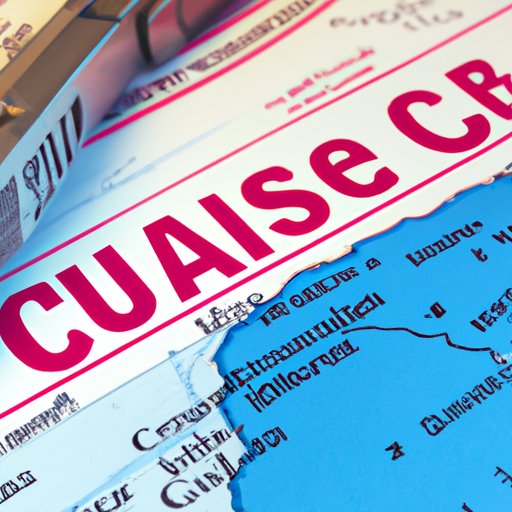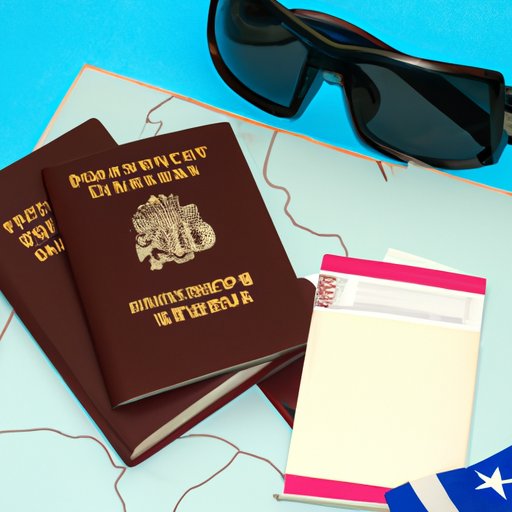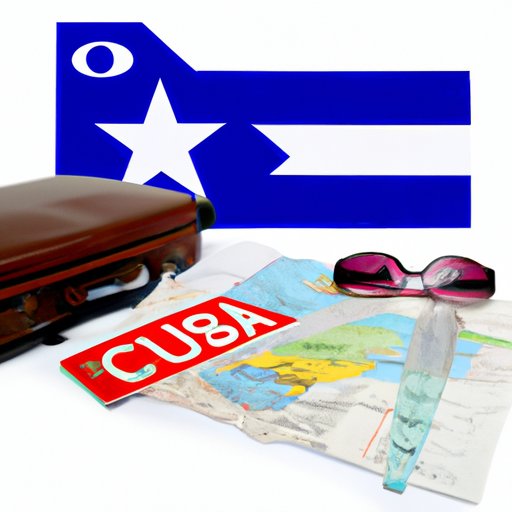
An Overview of the Legalities Surrounding Travel to Cuba from the US
Traveling to Cuba from the United States is a complex process due to the history between the two countries and current restrictions on US citizens. With proper preparation and knowledge of the legalities, however, it is possible for US citizens to take advantage of the opportunity to explore this fascinating country.
History of US-Cuba Relations
The United States has maintained an embargo against Cuba since 1960. This embargo restricts the import and export of goods and services between the two countries, as well as travel. The embargo was implemented in response to Fidel Castro’s rise to power and nationalization of US businesses in Cuba. Since then, relations between the two countries have been strained, with only limited diplomatic ties between them.
Current Restrictions on US Citizens Traveling to Cuba
In spite of the embargo, US citizens are still able to travel to Cuba, but they must do so within certain parameters. The US Department of Treasury requires that US citizens travel to Cuba under one of 12 specific categories outlined by the Office of Foreign Assets Control (OFAC). These categories include educational activities, humanitarian projects, professional research, religious activities, and more.
Different Ways US Citizens Can Legally Visit Cuba
One of the most popular ways US citizens can legally visit Cuba is through people-to-people tours. These tours are organized trips with a specific itinerary designed to allow US citizens to interact with and learn about the Cuban culture. Religious or educational trips and professional research visits are also common options for US citizens wishing to visit Cuba.
A Comparison of Different Ways to Visit Cuba from the US
Each type of trip has its own set of requirements and restrictions. People-to-people tours are the most popular option for US citizens, as they provide an easy way to experience the Cuban culture without having to plan an extensive itinerary. Religious or educational trips require participants to have a specific purpose related to their faith or studies and are typically limited to 10 days. Professional research visits are reserved for academics or professionals conducting research in Cuba.
People-to-People Tours
People-to-people tours are organized trips with a specific itinerary designed to allow US citizens to interact with and learn about the Cuban culture. These tours typically include visits to museums, art galleries, schools, and other cultural sites. The trips are limited to 10 days and must include a full-time schedule of educational activities. According to Dr. Emily Morris, an expert on US-Cuba relations, “people-to-people tours offer visitors the opportunity to engage with local Cubans, learn about their culture, and gain a deeper understanding of the country.”
Religious or Educational Trips
Religious or educational trips require participants to have a specific purpose related to their faith or studies. These trips are typically limited to 10 days and must include a full-time schedule of activities related to the purpose of the trip. Examples of activities may include attending a religious service or visiting a university. In addition, participants must keep detailed records of their activities while in Cuba.
Professional Research Visits
Professional research visits are reserved for academics or professionals conducting research in Cuba. Participants must obtain a license from the US Department of Treasury and submit a detailed research proposal outlining the purpose and scope of their research. These trips are typically longer than 10 days and may involve a full-time schedule of activities related to the research.
Exploring the Cultural Differences Between the US and Cuba
When traveling to Cuba from the US, it is important to be aware of the cultural differences between the two countries. Language barriers, political and social norms, and economic and currency differences can all affect the traveler’s experience. Understanding these differences before traveling can help ensure a safe and enjoyable trip.
Language Barriers
Spanish is the primary language spoken in Cuba, with English being less commonly used. While some Cubans may be able to understand basic English, it is important to brush up on basic Spanish phrases before traveling. Having a basic understanding of Spanish will make it easier to communicate with locals and enjoy the full Cuban experience.
Political and Social Norms
It is important to be aware of the political and social norms in Cuba. Discussion of politics and criticism of the Cuban government is not tolerated and can lead to serious consequences. In addition, public displays of affection between members of the same sex are not allowed and can result in fines or imprisonment.
Economic and Currency Differences
Cuba has two currencies, the Cuban Peso (CUP) and the Convertible Peso (CUC). The CUC is pegged to the US dollar and is the preferred currency of foreign tourists. It is important to be aware of the exchange rate and to bring enough cash to cover expenses while in Cuba. Credit cards are not widely accepted and most transactions must be done in cash.

Tips for Planning a Trip to Cuba from the US
Planning a trip to Cuba from the US can be overwhelming, but with proper preparation and research, it can be a rewarding experience. Here are some tips to help you plan your trip:
Researching Cuban Customs
Before traveling to Cuba, it is important to research the customs and culture of the country. This will ensure that you are prepared for any cultural differences and can avoid offending local customs.
Obtaining Necessary Documents
It is important to obtain all necessary documents before traveling to Cuba. This includes a valid passport, visa, and travel insurance. It is also important to research the specific requirements for the type of trip you are taking, such as people-to-people tours, religious or educational trips, or professional research visits.
Packing Appropriately
Be sure to pack appropriately for your trip to Cuba. Bring comfortable clothing and shoes that are appropriate for the climate and activities you will be participating in. Don’t forget to pack any medications you may need and emergency contact information.
Experiences from Americans Who Have Visited Cuba from the US
Hearing stories from people who have already visited Cuba can be a great way to get an idea of what to expect. Here are some experiences from Americans who have visited Cuba from the US:
Interviews with Tourists
The US-based website TravelCubaNow.com offers interviews with travelers who have visited Cuba from the US. These interviews provide an insight into the different types of trips available, the legalities involved, and the cultural experiences of the travelers.
Advice from Former Visitors
The website YourCubaTrip.com provides practical advice from former visitors to Cuba. This advice includes tips on packing, navigating the airports, and dealing with language barriers.
Stories of Interesting Encounters
The blog MyCubaVacation.com features stories from travelers who have visited Cuba from the US. These stories provide an interesting look at the people, places, and experiences they encountered while in Cuba.

How to Obtain Necessary Documents to Travel to Cuba from the US
In order to travel to Cuba from the US, US citizens must obtain a valid passport, visa, and travel insurance. They must also obtain a license from the US Department of Treasury if they are traveling for professional research. Here is some more information about the necessary documents:
Required Visa
US citizens must obtain a visa to enter Cuba. This visa can be obtained from a Cuban embassy or consulate, or from a third-party vendor. The visa must be presented upon arrival in Cuba and is valid for one entry and a maximum stay of 30 days.
Travel Insurance
Travel insurance is required for all US citizens traveling to Cuba. This insurance must cover medical expenses and repatriation costs in case of emergency. It is recommended to purchase travel insurance from a third-party provider, as insurance purchased directly from Cuban providers is not always reliable.
Other Documentation Requirements
US citizens must also present a valid passport and proof of return transportation upon entering Cuba. If they are traveling for professional research, they must also obtain a license from the US Department of Treasury.
Conclusion
Traveling to Cuba from the US can be a rewarding experience, but it is important to be aware of the legalities and cultural differences. With proper preparation and knowledge of the requirements, US citizens can take advantage of the opportunity to explore this fascinating country.
(Note: Is this article not meeting your expectations? Do you have knowledge or insights to share? Unlock new opportunities and expand your reach by joining our authors team. Click Registration to join us and share your expertise with our readers.)
